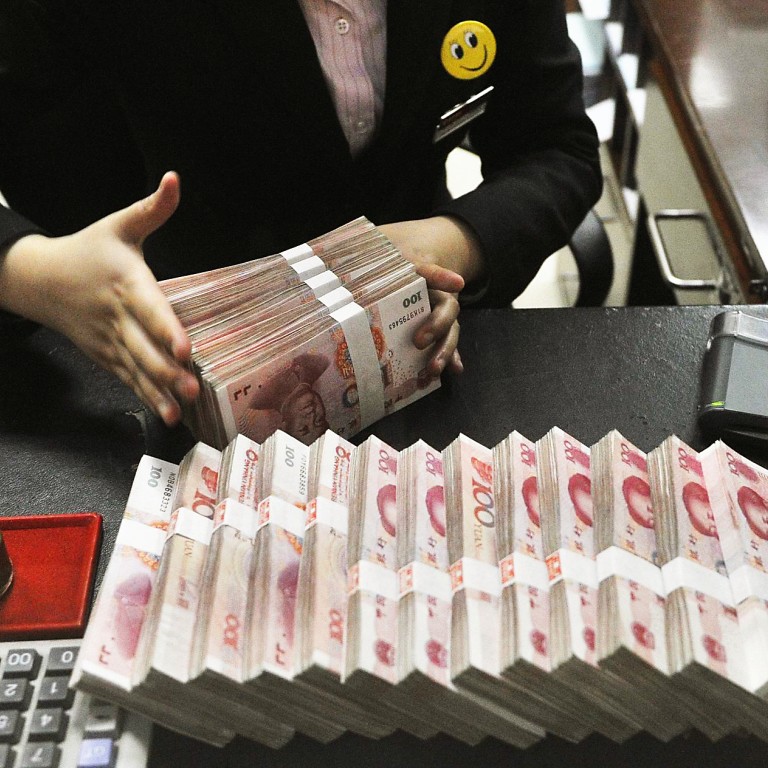
Exclusive | Shanghai official's vow on imminent freeing up of yuan a bone of contention
Response to Shanghai PBOC official's view that rules for capital account liberalisation in free port will be out within months highlights divisions
When will China fully liberalise the red-hot yuan?
Even the central bank of the world's second-biggest economy may not really have a clue, with its senior officials locked in a debate over when the mainland's foreign exchange controls should be lifted.
Some officials even argue there should not be a clear timetable for yuan liberalisation.
The debate over when Beijing will start the next round of foreign exchange reform became more heated recently after a senior central bank official promised the yuan would soon be freely convertible on the capital account in Shanghai's trail-blazing free-trade zone, launched late last year and primarily modelled on Hong Kong's free port system.
In a television interview with Shanghai media on March 7 during the annual meetings of the National People's Congress and Chinese People's Political Consultative Conference, Zhang Xin, deputy director of the People's Bank of China's Shanghai head office and a CPPCC delegate, surprised many when he promised that new rules to liberalise the yuan on the capital account in the zone would "definitely come out in the first half of 2014, or even faster, we hope".
The PBOC's Shanghai head office is the central bank's most important nerve centre after its main headquarters in Beijing, and Zhang is the top official appointed by Beijing to oversee financial reforms in the free-trade zone.
[Advocates for yuan reform may] win praise from top leaders like Premier Li
Zhang's comments immediately attracted the attention of market participants, because liberalising the yuan on the capital account would be the last step to officially making the currency fully convertible.
In other words, if it was fully convertible on the capital account, the yuan - already the seventh-most used currency for payments worldwide, according to a recent ranking by industry group Swift - would be as freely convertible as other major currencies, such as the US dollar and the euro.
The yuan is already convertible for trade - on the current account - but the central government still imposes restrictions on its convertibility for investments - on the capital account - mainly because of concerns that excessive money inflows and outflows could threaten the growth of the economy.
If the yuan can be liberalised on the capital account in the free-trade zone in the next three months, as Zhang expects, it would suggest the currency could also be quickly liberalised across the mainland.
Premier Li Keqiang has repeatedly said he wants advances in Shanghai's free-trade zone to be implemented elsewhere. Meanwhile, more than a dozen cities and provinces, including Guangdong and Tianjin, have applied to the central government for approval to set up somewhat similar free-trade zones, and they all want financial reforms, too.
Zhang's promise was greeted by a chorus of negative reactions from inside the central bank and from some influential government researchers and leaders. Even some senior Shanghai government officials described full convertibility of the yuan in the city's free-trade zone in the next three months as a "mission impossible".
"Basically, we haven't formally submitted any plan to further liberalise the yuan in the free-trade zone to any ministry in Beijing," said one senior Shanghai official who declined to be named owing to the sensitive nature of the matter.
"Even after we submit all our proposals to related ministries, the evaluation process could easily take three to four months, so how can free convertibility of the yuan on the capital account happen in the first half of this year?
"There are some people at the PBOC who really want to push the yuan reform forward as soon as they can, because they would consider any significant progress in yuan reform as an achievement - you could call it 'political capital' - that would help in job promotions and maybe even win praise from top leaders like Premier Li."
Yu Yongding, an economist who sat on the PBOC's monetary policy committee from 2004 to 2006, is one influential figure who has spoken out publicly against liberalising the yuan too quickly.
Yu, who is also a CPPCC delegate, said in a closed-door meeting during the annual sessions of the NPC and CPPCC that he was opposed to anybody setting a specific timetable for yuan liberalisation.
"There should not be a timetable for the full convertibility of the yuan," a person at the meeting quoted Yu as saying.
"Yu's tone was very decisive and even a bit angry", signalling growing tensions between the pro-liberalisation camp and others who are considered more conservative.
Suan Teck Kin, a senior economist at Singapore's United Overseas Bank, said Beijing's recent decision to expand the yuan's daily trading band from 1 per cent on either side of a reference rate to 2 per cent signalled that the central bank was still adopting a conservative approach to foreign exchange reform.
That "suggests that the authorities are still approaching market reform and the restructuring process in a measured and cautious manner, despite the distorting effects the current system is having on pricing and capital flows", Suan said.
Former PBOC deputy governor Wu Xiaoling, now deputy director of the NPC's finance and economy committee, has also opposed rapid liberalisation of the yuan, according to sources, even if only for a trial in the Shanghai free-trade zone.
"Strong opposition from Yu and Wu soon made Zhang's promise to make the yuan fully convertible in Shanghai in the coming months look like a bounced cheque," one of the sources said.

